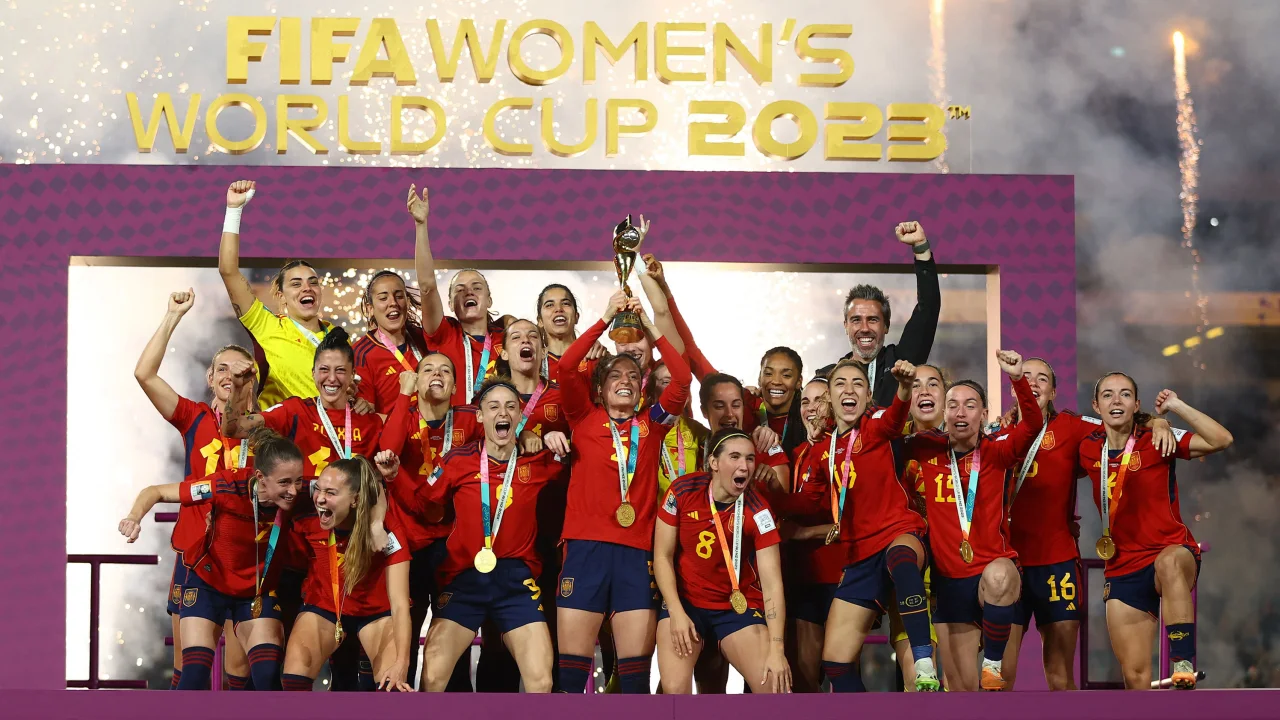Fireworks on and off the pitch as FIFA prepares for women’s football to ‘explode’
by Admin

A final roar of triumph shook Sydney’s Stadium Australia as fans wearing red and gold punched the air, danced in flags and cried “España!” at the end of a Women’s World Cup that FIFA claims is its most successful yet.
But a Spanish victory, secured even without some of the country’s best players, has in some ways brought the tournament’s off-field arguments full circle, from early complaints about unequal pay to renewed focus on La Roja and their fight against their country’s soccer establishment.
An uninvited kiss by Royal Spanish Football Federation (RFEF) President Luis Rubiales on the lips of star midfielder Jennifer Hermoso on the winners’ podium, just days after FIFA boss Gianni Infantino advised women to “pick their battles,” only served to underscore how much work there is to level the playing field.
In Europe, the historical home of the sport, these familiar frustrations received a fresh airing. But in Australia, relative newcomers to the game’s big leagues, the arrival of the world’s best women’s players has left old and new fans starry-eyed with possibility.
Despite placing fourth – the team’s best finish at a World Cup – the ability of relative outsiders to make it that far has elevated Australia’s Matildas to hero status. Statues are being built, money is being granted, facilities upgraded and murals designed as a reminder of how they “captured the imagination of the nation.”
But many within the sport hope the legacy of this World Cup is not just ornaments of greatness but lasting change that gets more women and girls onto fields, pitches, courts and stadiums – and offers equal pay on the international stage.
For Australians, it seems like their moment may be now.
Arguments about a lack of interest in the women’s game – evidenced by derisory offers for broadcast rights – were answered with record viewing figures. The Matildas’ semifinal against England was Australia’s most watched TV program since the ratings system began more than two decades ago, with an average audience of 7.2 million and reaching 11.15 million viewers.
“It really feels like we have brought the nation together over football, which some people might’ve said we were crazy if we had said this would happen a year ago,” Matildas captain Sam Kerr told reporters ahead of the third-place game against Sweden.
But it did happen – and it’s reaping dividends not only for football but women’s sports across the country.
A final roar of triumph shook Sydney’s Stadium Australia as fans wearing red and gold punched the air, danced in flags and cried “España!” at the end of a Women’s World Cup that FIFA claims is its most successful yet. But a Spanish victory, secured even without some of the country’s best players, has in some…
Recent Posts
- Liverpool ends 15-year curse with statement win over Real Madrid
- The TSA-approved hack that allows travelers to bring a bottle of water through airport security
- Подводный WiFi, аквапонные фермы: как морские техностартапы привлекают инвесторов
- “Подводный интернет”: эта женщина может подключить беспроводную сеть на 3-километровой глубине
- Inside the wild world of Osaka’s dangerous, adrenaline-fueled float festivals